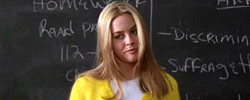Reviews
Anthony Minghella
UK, 1991
Credits
Review by Jenny Jediny
Posted on 25 July 2006
Source MGM/UA DVD
Categories Chick Flicks
The tearjerker possibly lacks more respect than any other genre in the female-oriented film lexicon. Perhaps the stereotype of the hysterical and uncontrollable crying woman has founded this mocked genre, as even female filmmakers have poked fun at women’s tears (“There’s no crying in baseball!” springs to mind). Yet tears remain a core motivation for women to gather in droves and watch the same, usually sappy film, over and over again. Historically, there are incredible weepies connected to the melodramas of the 1950’s, specifically the films of Douglas Sirk, and were most recently paid homage to in Todd Haynes’ critically acclaimed Far From Heaven. While this generation of films have garnered re-evaluation and renewed interest, the more recent weepies (post-1980 and on) are generally received with the critical acclaim on a Lifetime TV movie.
Released within a year of one another, Ghost and Truly Madly Deeply deal with a similar theme of romanticized contact with the dead, but the contrasts between the two certified tearjerkers are far more palpable. The well-known and enormous Hollywood hitGhost heightens its plot with thriller elements, as the deceased male lead, Sam, is murdered in a backstabbing plot by his business partner, and contains special effects that include Sam appearing in pools of white light and lifting pennies in the air while remaining invisible to the human eye. Although the film promotes itself on its love story, the fairly absurd storyline mainly focuses on the repeated disbelief of Sam’s surviving girlfriend Molly, who refuses to accept that he is attempting to protect her from beyond. The treatment of loss in Ghost does not acknowledge grief or depression but instead becomes a shoddy series of misunderstandings between Molly and the psychic Oda Mae, the only living individual who can still hear Sam, and whom Molly deems a con artist. This is the film’s weakest attempt for tension, as it becomes more and more incredulous and laughable that Molly cannot accept a stranger’s knowledge of her intimate personal life, ranging from vacations she took with Sam to the color of her underwear. The guessing game overwhelms any trace of a genuine love story, as do Sam’s attempts to avenge his death.
With all its bells and whistles, Ghost amounts to very little, and avoids any genuine emotional involvement with both its characters and audience, yet its superficial facade continues to appeal to female viewers. The film’s now infamous pottery sequence is often singled out by fans of the film as it supposedly indicates Sam and Molly’s love for one another, while the discerning eye would argue it is simply a banally edited sex scene that taps into stereotypical signifiers of love, most nauseatingly the diegetic use of “Unchained Melody.” With no imperfections or individuality, the main characters are stock, with only irritating idiosyncrasies (Sam’s pointed use of the phrase “Ditto”, a substitution for “I love you,” is certainly the most agitating). At its conclusion, Ghost ultimately believes that love lost can find closure in 120 minutes, as Sam and Molly are allowed to not only hear one another, but also finally see one another in a shaft of heavenly light, as they bid farewell. Granted, the genre allows for such sensational moments, as well as catharsis for its devoted fans that will never experience such fantastical events, but certainly not such condescension.
Created in part with BBC television, Truly Madly Deeply was produced on a much smaller scale than Ghost, and this difference may most positively be reflected in its far more grounded storyline. Although the film appears to take itself far more seriously than Ghost, with a black & white title sequence that features star Alan Rickman performing a classical piece, the film later infuses moments of humor, as well as several story clichés that do not overwhelm the film’s emotional core. Arguably the performances in the film outshine the material, particularly Juliet Stevenson as the living survivor, Nina. The first half of the film is melancholy and often moving, as Nina moves through daily life in a near fog, confessing to her therapist that she can still hear Jamie, whether she is walking home or brushing her teeth. Nina’s grief is well portrayed, as she vacillates between weeping and expressing extraordinary anger at her loss, which is quite ordinary, if one compares the foul play of Ghost to an unexpected fatal ailment. Jamie’s return brings Nina inexpressible happiness, but also isolates her, keeping her away from work, her friends and family as she retreats inwardly until the problems that plagued the relationship in life reemerge in death (Jamie cannot help but rearrange Nina’s furniture, criticizes her flat, and proceeds to invite his dead friends over for movie watching).
Anthony Minghella’s directorial debut focuses nicely on the strong love between Nina and Jamie, as despite the imperfections in their relationship (and obviously Jamie’s postmortem return) it seems impossible for Nina to let go, a sentiment that Minghella successfully applies to not only death but also the stagnant romantic relationship. This is the crux of Nina’s grief, as she clings to not only her memories but also the physical items left behind by Jamie, such as his cello. An astute observation of grief, Minghella often frames Nina with the cello, and at one point she clings to it as if it were Jamie, refusing to let it leave her sight, until it eventually becomes a harbinger of her difficulty to move on, as the mere sound of a cello abruptly ends her first venture into the dating world.
The film eventually gives way to spiritual reconciliation and new love, after Nina meets Mark, a gentle and persistent teacher who educates the mentally challenged. This is a turning point in the film that is its most predictable moment, and is slightly saccharine in its overwrought lesson in tolerance. This theme of acceptance is also superficially explored in Nina’s job as a an English language tutor, where she teaches and befriends a pregnant woman from Spain whose experience with childbirth pushes Nina to rejoin the living; unfortunately, this character, as well as several of Nina’s non-English acquaintances, are mere plot points or oddly drawn caricatures whom seem to be present to simply add multiculturalism to the film. Despite the shallow dip into England’s issues of globalization and immigration, this film is in the end a weepie, and essentially concerned with death and its repercussions for the living, not a work bent on political statement. In dealing with this issue, Truly Madly Deeply succeeds in sensitively expressing the difficulty of loss as well as the fears in ultimately accepting it.
More Chick Flicks
-

The Truth About Cats & Dogs
1996 -

Say Anything
1989 -

Gas Food Lodging
1992 -

Pretty Woman
1990 -

Walking and Talking
1996 -

Mean Girls
2004 -

Fried Green Tomatoes
1991 -

Private Benjamin
1980 -

Clueless
1995 -

Erin Brockovich
2000 -

The Bridges of Madison County
1995 -

Bridget Jones’s Diary
2001 -

Working Girl
1988 -

Bend It Like Beckham
2002 -

Bring It On
2000 -

Ghost
1990 -

Truly Madly Deeply
1991 -

The Last of the Mohicans
1992
We don’t do comments anymore, but you may contact us here or find us on Twitter or Facebook.



